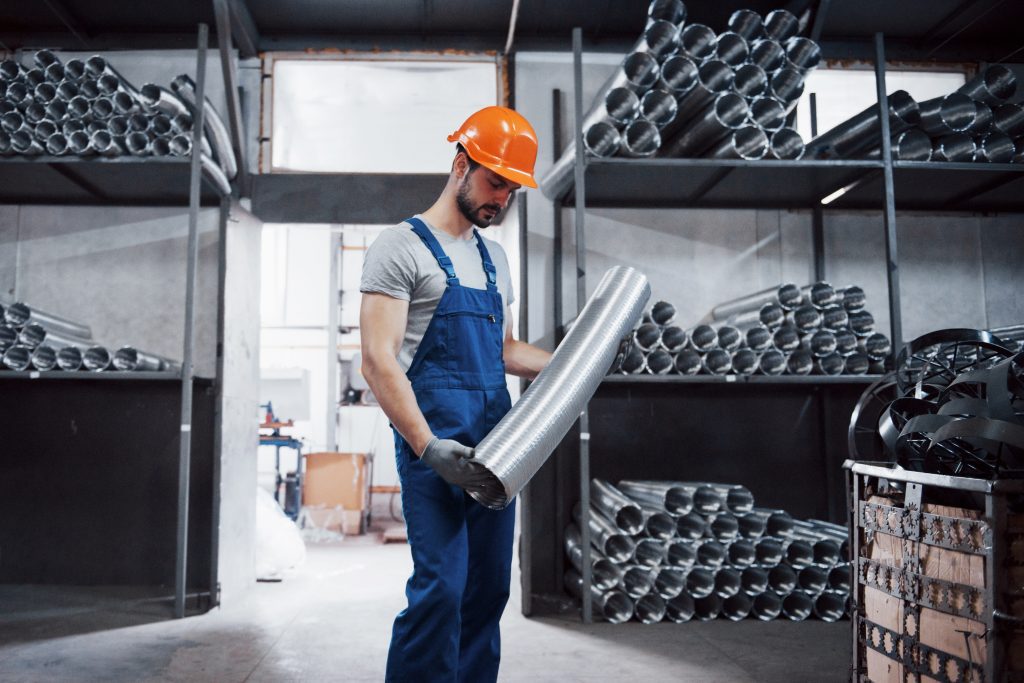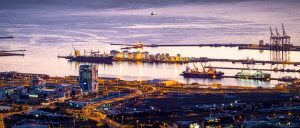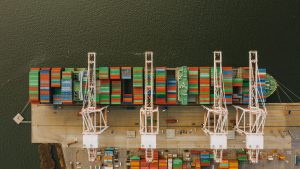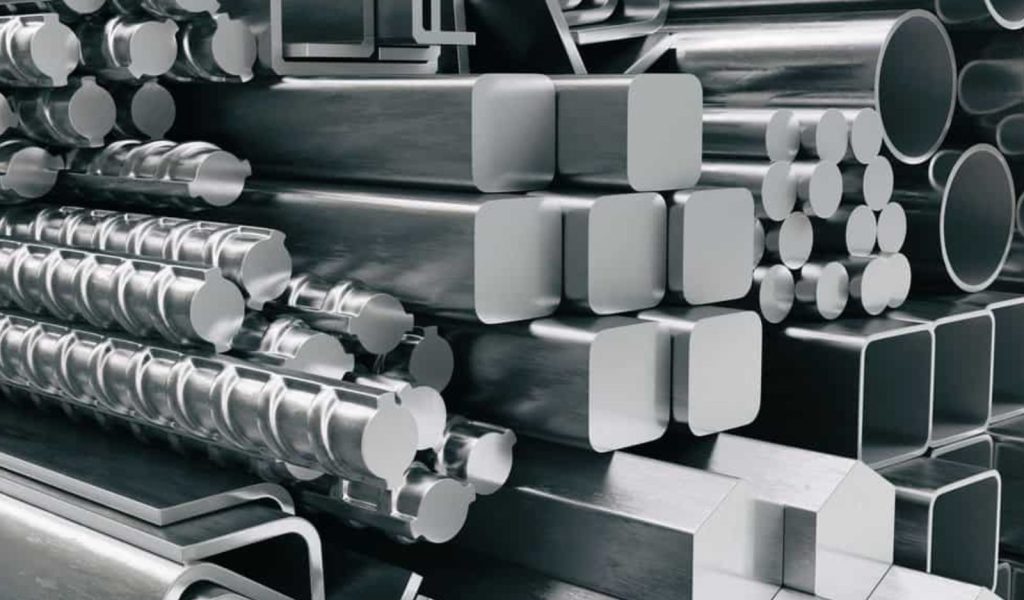The global demand for steel pipes has been growing rapidly, fueled by sectors like construction, energy, and petrochemicals. As a result, importing steel pipes has become a lucrative business opportunity for many. However, if you’re new to the world of importing, the process can seem a bit overwhelming. Fortunately, this guide will break down everything you need to know, from choosing the right suppliers and handling logistics to understanding international regulations and avoiding common pitfalls.
Let’s dive into the details and help you master the art of steel pipe imports.
Why Import Steel Pipes?
Steel pipes are essential in various industries, making them a high-demand product that can boost your business profits. Importing steel pipes offers multiple benefits:
- Cost-Effectiveness: Countries like India have lower production costs, allowing you to buy steel pipes at competitive prices compared to sourcing domestically. This advantage comes from reduced production expenses, such as cheaper labor and energy inputs.
- Product Variety: Overseas suppliers provide access to a broader spectrum of pipe sizes, grades, and specifications, many of which aren’t locally available. (Connect with suppliers who offer customisation as per requirement) Having access to this variety allows you to serve a wider range of clients and projects effectively.
- High Demand Across Industries: Steel pipes play a crucial role across sectors like plumbing, construction, energy, and petroleum – making them consistently marketable.
Using sourcing specialists like Ayaan International, you can streamline your procurement process by requesting quotes from over 300+ suppliers in India and globally, ensuring you receive competitive offers within 48 hours. Now, let’s explore the types of steel pipes available for import.

Types of Steel Pipes you can Import
Choosing the right steel pipes is critical to ensuring the satisfaction of your customers. Here are the main types of steel pipes you might consider importing:
Mild Steel Pipes
Mild steel pipes are a go-to option because they balance strength, cost-efficiency, and adaptability. They’re commonly found in construction, fencing, and water systems since they offer reliable structural integrity without high expenses.
Applications: Structural supports Fencing Water pipelines Industrial applications
Stainless Steel Pipes
Stainless steel pipes are corrosion-resistant, making them suitable for industries that deal with moisture, chemicals, and extreme temperatures. Their sleek appearance also makes them desirable for architectural applications. Stainless steel comes in various grades, including 304, 316, and 430, each suited for different purposes. For instance, 316 stainless steel is highly resistant to corrosion, making it ideal for marine environments.
Applications: Chemical processing Food and beverage industries Water treatment Architectural projects
Galvanized Steel Pipes
Galvanized steel pipes are coated with a layer of zinc, which prevents rusting and extends the pipe’s lifespan, especially in outdoor settings. These pipes are commonly used in agricultural sectors and infrastructure projects due to their durability and low maintenance requirements.
Applications: Irrigation systems Fencing and outdoor structures Agricultural machinery Water supply lines
Seamless vs. Welded Pipes
Seamless Pipes: Formed from a single block of steel, these pipes offer enhanced durability and are well-suited for high-pressure conditions. They’re commonly found in industries that demand strong and lasting materials.
Welded Pipes: Budget-friendly and created by joining steel strips, these pipes are typically used where pressure loads are minimal.
Each type of pipe serves different markets, so knowing your target audience is critical. In case you are not sure what kind of Pipe works for your project, experienced teams at Ayaan International is always there to guide and support you.
Finding Reliable Steel Suppliers
One of the most critical steps in importing steel pipes is selecting a reliable supplier. The quality of the steel you import will directly affect your business’s reputation, so it’s essential to work with suppliers who can deliver consistent, high-quality products. Here’s how you can find dependable suppliers:
Certifications
Suppliers should adhere to international standards like ASTM (American Society for Testing and Materials), EN (European Standards), or ISO (International Organization for Standardization). Adhering to these standards and attaining paperwork from suppliers certifying the same means you can guarantee high quality products.
Production Capacity
Check whether the supplier can handle large volumes if you plan to scale your operations. It’s vital that they meet your order volume without compromising on quality or delivery times.
Past Performance
Look for suppliers with a strong track record. Read reviews, ask for references, and if possible, speak to past clients. Reputable suppliers will have no issues providing you with this information.
Sample Testing
This allows you to test the product for quality, dimensions, and corrosion resistance.
Pricing and Quotes
Never sacrifice quality for price. Use platforms like Metal Movers to request quotes from multiple suppliers, enabling you to compare prices and choose the best deal for your business.

Understanding Import Regulations and Compliance
When importing steel pipes, complying with international and local regulations is crucial. Not complying to these regulations can mean heavy penalties and in turn losses. You should consider the following when purchasing material:
Tariffs and Import Duties
Almost all countries have tariffs or duties levied on steel imports to promote local manufacturing. For example, the U.S. and European Union often impose anti-dumping taxes on steel products. These extra charges can significantly impact your pricing and profit margins. Always calculate these costs beforehand and build them into your pricing strategy to stay competitive.
Anti-Dumping Regulations
Dumping happens when a country exports goods at prices below market value to outcompete local producers. To safeguard domestic industries, many countries impose anti-dumping duties on underpriced imports. Check if your steel pipe shipments fall under such categories, as these charges can dramatically raise costs.
Product Standards
Each country has distinct quality and safety regulations that imported steel products must adhere to. Many global buyers rely on ASTM (American Society for Testing and Materials) or EN (European Norms) certifications, but local rules can differ. To avoid delays or penalties at customs, confirm that the steel pipes you’re importing meet national compliance standards.
Trusting experts like Metal Movers can save you time and hassle here. We ensure the steel pipes you source meet all relevant standards – so you can focus on business, not bureaucracy.
Shipping and Logistics for Steel Pipe Imports
Importing steel isn’t just about buying and selling – it’s also about getting the goods from point A to point B smoothly. Here are the logistics must-knows:
- Shipping Costs – Steel pipes are heavy and bulky, which can make freight expensive. Work with carriers that specialize in heavy or bulk industrial goods. Factor in not just the weight, but dimensions, packaging type, and destination port to accurately predict shipping fees.
- Insurance – Steel is valuable – especially in bulk. Damages or loss in transit can burn a hole in your pocket. Always opt for insurance coverage that includes delays, corrosion, physical damage, or port mishandling.
- Incoterms – Incoterms define who takes responsibility at each shipping stage. For new importers, FOB (Free on Board) is often preferred – it gives you control once the goods are on the ship, without dealing with foreign port logistics. Other options like CIF or DDP might be better depending on your capabilities.
- Documentation – Customs clearance depends on correct and complete paperwork. You’ll need a Bill of Lading, Commercial Invoice, Certificate of Origin, and Packing List at a minimum. Incomplete or inaccurate paperwork can lead to customs delays, monetary penalties, or in some cases, the goods being held or confiscated.
With Metal Movers, you can streamline these processes through our logistics network and expert freight agents – saving you both time and cost.
Avoiding Common Importing Pitfalls
Importing steel pipes can be rewarding – but it’s easy to trip up if you’re not careful. Here’s what to avoid:
- Hidden Costs – Tariffs, freight charges, inspection fees, insurance, and customs clearance add up. Always ask your supplier or logistics partner for a full cost breakdown upfront before confirming orders.
- Skipping Quality Control – Don’t assume what you receive matches the product catalog. Always arrange for third-party inspections or quality tests before the shipment leaves the supplier’s factory.
- Ignoring Market Volatility- The cost of steel changes frequently, influenced by global demand, raw material availability, and transportation or fuel expenses. Keep an eye on market trends and consider price-locking contracts to protect yourself from sudden surges.
Best Practices for Steel Pipe Imports
Here are some pro tips to make your importing journey efficient and profitable:
- Leverage Technology – Use digital tools to track shipments, receive alerts, and manage inventory. Metal Movers provides a details to track your orders, quotes, and documentation in real-time.
- Build Strong Supplier Relationships – Trustworthy suppliers offer consistent quality, flexible payment terms, and priority service. Foster long-term partnerships to get better deals and service down the line.
- Prepare for Delays – International logistics is rarely 100% on time. Port congestion, strikes, weather delays, or compliance issues can cause hiccups. Always factor in buffer time in your delivery commitments.
Conclusion
Importing steel pipes offers massive potential for businesses seeking high-demand, high-margin products. But success depends on preparation – knowing your suppliers, planning logistics, understanding regulations, and navigating market conditions.
With Metal Movers, you can simplify everything from sourcing and shipping to inspections and customs. Get your free quotes today at metalmovers.in and experience a seamless way to import high-quality steel pipes at competitive prices. 🌟
To explore products beyond steel, check out Ayaan International our parent company known for providing a wide range of engineering solutions and goods.













